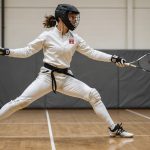Physical Skills and Athleticism
In the world of basketball, physical attributes such as speed and agility are paramount. Scouts often prioritize these traits since they significantly impact a player’s ability to create opportunities on the court. Imagine a player swiftly maneuvering past defenders, illustrating the importance of these attributes in athletic performance.
Strength and conditioning play a critical role in performance enhancement, too. Proper training not only boosts a player’s stamina but also fortifies their overall basketball skills. For instance, engaging in weight training can elevate a player’s endurance, enabling them to maintain high performance throughout the game.
In parallel : Building Mental Fortitude: Essential Techniques for UK Basketball Players Overcoming Adversity
Moreover, a player’s vertical leap and explosiveness profoundly affect gameplay. A player’s ability to jump high can determine their success in rebounding and shot-blocking. An impressive vertical leap showcases both power and agility, essential ingredients for modern basketball.
In summary, the combination of speed, strength, and explosiveness defines a player’s athletic performance on the basketball court. These basketball skills not only provide a competitive edge but are also meticulously evaluated by scouts during player assessments. These physical skills, taken together, form the backbone of a successful basketball career.
Also to discover : Accelerate your game: proven strategies for uk basketball players to sharpen their offensive first step
Mental Toughness and Resilience
In the realm of basketball, mental attributes play a pivotal role in influencing performance under pressure. A player’s ability to stay composed and focused is crucial, especially during tight game moments. Mental toughness involves overcoming nerves, maintaining concentration, and executing strategies despite external stressors.
A competitive mindset fosters a desire to excel and face challenges head-on. This mindset doesn’t just improve performance; it fuels the development of skills through persistence and adaptability. For example, embracing a growth mindset allows players to accept failures as learning experiences, enhancing their technical skills and strategic depth over time.
Several renowned players have epitomised resilience by overcoming challenges. Consider instances where athletes battled injuries but returned stronger. Their journeys exhibit incredible determination and perseverance, underscoring how mental resilience can shape successful careers. Being able to bounce back from setbacks is often what differentiates great players from the rest.
Ultimately, these mental attributes—toughness, resilience, and a growth-oriented mindset—are key to thriving in competitive environments. Scouts look beyond physical skills to identify individuals who consistently demonstrate these traits on and off the court. Such players are invaluable assets, likely to lead both through their performances and their mental fortitude.
Game Intelligence and Decision-Making
In basketball, game IQ is a critical factor that scouts meticulously evaluate. It encompasses understanding plays, anticipating opponents’ moves, and making strategic decisions. Strategic thinking enables players to adapt swiftly, crafting opportunities and disadvantaging opponents in real time.
One element of game IQ is the ability to read and respond to the flow of the game. This involves recognising defensive patterns and exploiting openings. Players with high basketball intelligence can modify tactics on the spot, demonstrating an invaluable adaptability coaches seek.
High-IQ plays often illustrate a player’s profound comprehension of both offensive and defensive strategies. For instance, executing a no-look pass to exploit a gap in the defense not only reflects precise decision-making abilities but also an instinctive grasp of team dynamics. These instances reveal a player’s capacity to think several steps ahead.
Scouts look for athletes who contribute more than physical prowess, valuing those who exhibit keen judgement and awareness on the court. Such traits are pivotal for building a cohesive team, where each member is attuned to collective goals and strategies, further elevating overall athletic performance.
Skill Development and Technical Proficiency
Developing technical skills is fundamental for success in basketball, with scouts placing significant emphasis on this during evaluations. A player’s proficiency in shooting, dribbling, and passing forms the bedrock of their basketball skills. Shooting accuracy often captures attention, as it directly affects scoring potential. Players must master technique and maintain consistency to excel in this area.
Beyond shooting, impeccable ball handling is crucial. Effective dribbling not only enhances individual gameplay but also contributes to the team’s overall dynamics. It allows for better maneuverability and control, crucial for breaking through defenses and creating scoring opportunities. Scouts prioritize these skills, as they provide both an offensive and defensive edge in games.
Passing skills, intertwined with dribbling, reveal a player’s capability to synchronise with team strategies, demonstrating unanticipated strategic depth. This facilitation of plays ensures fluid team dynamics and cohesive execution of tactics, further illustrating their technical prowess.
Overall, mastering these core basketball techniques not only elevates individual performance but also amplifies a player’s ability to integrate seamlessly into team operations. This holistic focus on skill development enhances their attractiveness to scouts and aligns with the ultimate goal of fostering a well-rounded athletic performance.
Attitude and Coachability
In basketball, a player’s attitude is vital, underpinning their potential for development and success. Scouts see players with a positive attitude as more likely to refine their basketball skills consistently. A favourable disposition aligns with an eagerness to evolve, signifying a willingness to absorb feedback and adapt effectively.
Coachability is rooted in a player’s receptiveness to coaching techniques. This trait demonstrates how a player can assimilate instructions and adjustments from their coach. Athletes excelling in this area often show remarkable growth, as they are open to integrating new techniques and strategies that enhance their on-court performance.
Testimonials reveal that scouts closely monitor player interactions during games and training. These observations help in assessing how an athlete incorporates feedback and collaborates with coaches and teammates. A player showcasing teamwork and adaptability underlines their commitment to both personal and team progress.
Teamwork is crucial, as it reflects an athlete’s ability to function within a cohesive unit. Players who balance individuality with team-oriented goals are invaluable, rapidly identifying and addressing team dynamics to optimise gameplay. Encountering a player embodying these elements is a significant find during the scouting process.
Work Ethic and Commitment
In basketball, a player’s work ethic is essential for achieving their full potential. Scouts frequently assess this trait, noting that dedication to training and improvement can dramatically influence a player’s growth. A strong commitment level to daily practice routines and improvement programs sets apart promising athletes from their peers.
A profound dedication to honing one’s skills involves adhering to disciplined training habits. Players who invest time in rigorous exercises and focus on fine-tuning their techniques often experience marked advancements in their athletic performance. Such commitment is indispensable for those aspiring to excel in basketball’s competitive landscape.
Case studies frequently highlight the correlation between unwavering work ethic and player success. For instance, athletes renowned for their steadfast dedication often see significant progress, translating into impressive on-court achievements. These examples underscore how commitment and persistent effort can yield substantial career benefits, illustrating the importance of this attribute in player evaluations.
Commitment level and training habits not only enhance individual skills but also reinforce team morale, inspiring peers to strive for improvement. Scouts value players exhibiting these traits and consider them pivotal in forging future basketball stars.
Off-Court Character and Sportsmanship
In the realm of basketball, character assessment holds significant weight in scout evaluations. Beyond athletic performance, a player’s behaviour outside the court can profoundly influence team dynamics. A player’s sportsmanship reflects their ability to contribute positively to the team culture, enhancing overall harmony.
Basketball scouts often look for athletes who demonstrate exemplary off-court behaviour. This includes how players conduct themselves in everyday circumstances, whether it be engaging with fans, supporting teammates, or handling media interactions professionally. Positive behaviours foster team unity, elevating the collective spirit and morale.
Conversely, negative influences from inappropriate conduct can fracture team cohesion, impacting performance adversely. Therefore, assessing a player’s character is pivotal in predicting their compatibility within a team environment. Players who exemplify strong character traits, such as humility and respect, are seen as assets poised to enrich their team’s cultural fabric.
Examples abound where players’ off-court actions have either bolstered or hindered their careers. Acts of goodwill can elevate an individual’s standing, attracting favourable attention, while poor choices can damage reputations. Thus, players must maintain integrity and sportsmanship at all times, as scouts are vigilant about these crucial character determinants.
Physical Skills and Athleticism
In basketball, physical attributes like speed and agility are essential in a player’s evaluation. These traits directly impact their athletic performance, allowing players to outpace opponents and manoeuvre effectively during games. Speed assists in fast breaks and defensive plays, while agility is crucial for changing directions swiftly, enabling effective evasive actions and maintaining control in tight spots.
Strength and conditioning are vital for enhancing players’ endurance and performance. Strong muscles support robust basketball skills, allowing athletes to sustain intensity throughout games. Weight training not only builds stamina but also reinforces muscle resilience, ensuring players maintain high energy levels without compromising technique or precision.
A player’s vertical leap and explosiveness are significant in determining success, notably in rebounding and defensive blocks. These attributes highlight a player’s ability to jump high and assert themselves physically, crucial in both offensive and defensive scenarios. A player with an impressive leap can dominate the airspace above the court, controlling rebounds and successfully challenging opponents’ shots.
Overall, scouts meticulously evaluate these physical skills as they form the backbone of a successful basketball career, providing a critical competitive edge that defines aspiring athletes from their peers.




